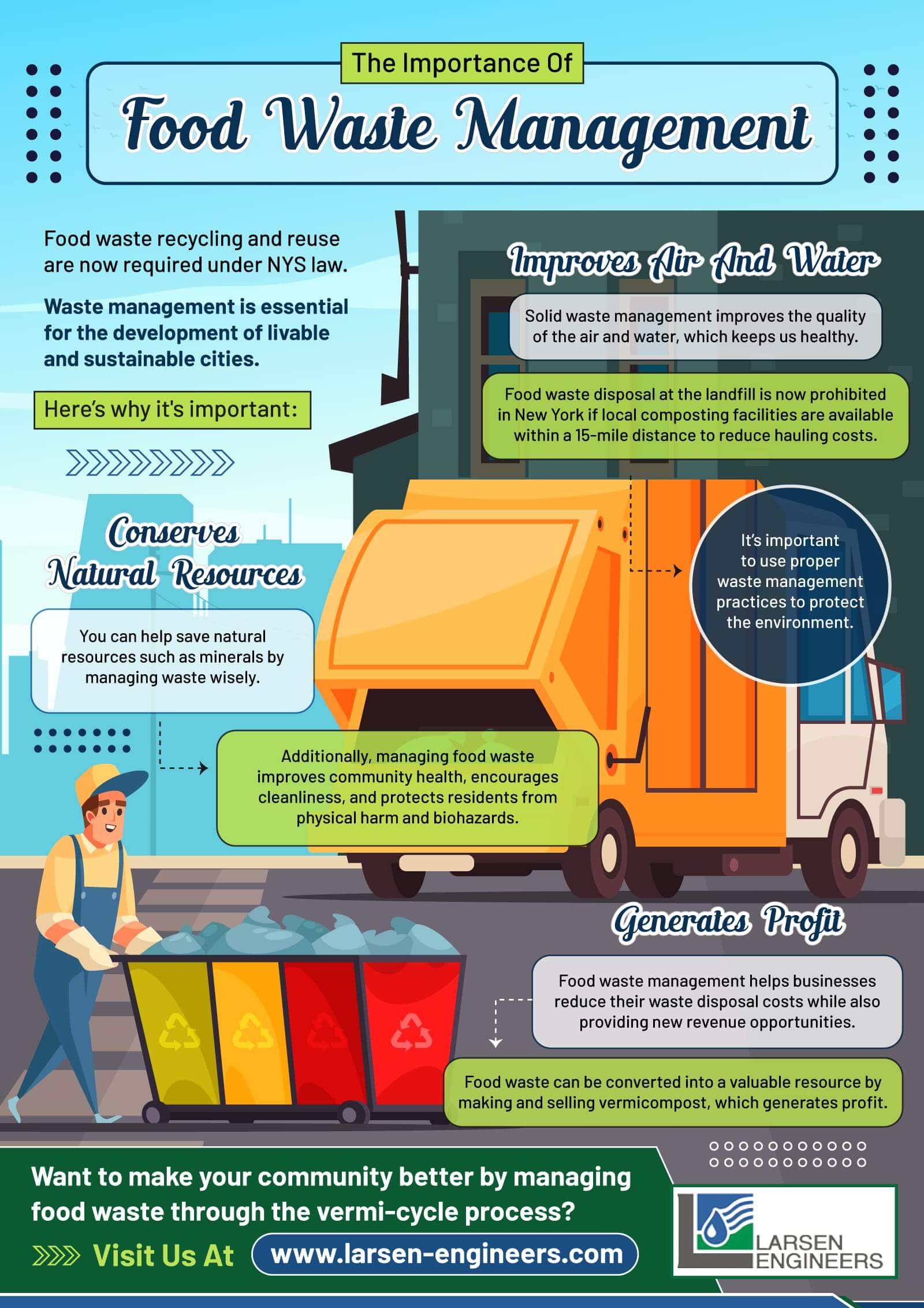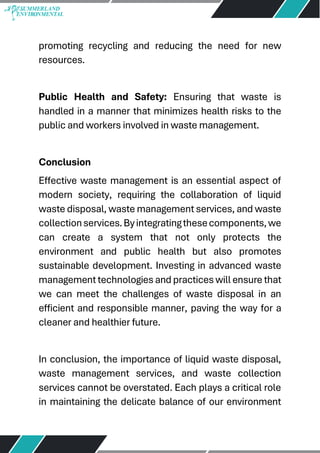How Reclaim Waste can Save You Time, Stress, and Money.
How Reclaim Waste can Save You Time, Stress, and Money.
Blog Article
Some Known Questions About Reclaim Waste.
Table of ContentsAn Unbiased View of Reclaim WasteThe Reclaim Waste PDFsMore About Reclaim WasteExcitement About Reclaim WasteThe smart Trick of Reclaim Waste That Nobody is Talking About
Residential sewer waste refers to the waste and items from a household septic container. The proper administration and disposal of domestic sewage waste require fluid waste to be transferred to a sewer therapy plant where the proper techniques and devices are applied to purify and dispose of waste.
Business waste often consists of possible hazards, such as combustible materials or a mix of liquid and strong waste products, and needs an extra sophisticated and in-depth disposal procedure. The disposal of commercial waste normally entails the filtration of waste prior to transportation to ensure secure and proper disposal. Hazardous waste is produced from results and runoff of industrial procedures and production.
This type of waste can not utilize the exact same sewer management transportation or processes as septic or commercial liquids. The hazardous waste monitoring procedure calls for the assessment and screening of fluid waste prior to it goes through the disposal procedure (liquid waste removal). Overflow waste is the fluid waste that comes from overflow and excess stormwater in highly booming locations or cities
Overflow waste can trigger contamination and flooding if not managed effectively. Guaranteeing proper waste management can stop catastrophes and minimize environmental injury.
What Does Reclaim Waste Mean?
Get in touch with PROS Services today to learn more about our waste monitoring and disposal services and the correct methods to care for the liquid waste you produce.
(https://issuu.com/reclaimwaste1)Do you understand what happens to your water when you disengage, flush the commode or drain the washing machine? No? Well, it deserves understanding. This supposed 'wastewater' is not only an essential resource but, after treatment, will be launched to our land, waterways or the ocean. Utilized water from bathrooms, showers, bathrooms, kitchen sinks, washings and industrial procedures is referred to as wastewater.

water used to cool down equipment or tidy plant and tools). Stormwater, a form of wastewater, is drainage that flows from farming and urban locations such as roofs, parks, gardens, roadways, paths and rain gutters right into stormwater drains, after rainfall. Stormwater flows untreated straight to local creeks or rivers, ultimately reaching the sea.
Not known Details About Reclaim Waste
In Queensland, the majority of wastewater is treated at sewer therapy plants. Wastewater is moved from residential or industrial websites via a system of drains and pump terminals, called sewerage reticulation, to a sewage treatment plant. Regional federal governments construct, preserve and operate most sewage treatment plants. Operators are certified under the Environmental Protection Act 1994 to discharge treated wastewater at an acceptable ecological standard into rivers.
The Division of Natural Resources suggests city governments about handling, operating and keeping sewage systems and treatment plants. In unsewered locations, neighborhood federal governments might require owners to set up individual or house sewage treatment systems to deal with domestic wastewater from commodes, kitchens, washrooms and washings. The Division of Natural Resources authorizes making use of household systems when they are confirmed to be effective.
In some new neighborhoods, treatment of some stormwater to eliminate trash, sand and crushed rock has started using gross toxin traps. Wastewater therapy happens in 4 stages: Removes solid issue.
Utilizes small living microorganisms knows as micro-organisms to break down and eliminate continuing to be dissolved wastes and fine fragments. Micro-organisms and wastes are incorporated in the sludge.
The 8-Second Trick For Reclaim Waste
Nutrient removal is not offered at all sewer treatment plants due to the fact that it needs pricey specialised devices. Clear liquid effluent generated after treatment might still include disease-causing micro-organisms - liquid waste disposal melbourne.

This usually implies wastewater has actually to be dealt with or impurities removed before it can be discharged to rivers. The majority of wastewater moves right into the sewage system. Under the Act, neighborhood go to these guys federal governments provide authorizations and permits for eco appropriate activities (Periods) involving wastewater releases that might have a regional influence. The department administers approvals and licences to Periods entailing wastewater releases that might have a local or statewide effect.
Reclaim Waste - Truths
Monitoring offers accurate info regarding water top quality and can validate that permit conditions are being met. The information gotten with surveillance provides the basis for making water quality choices.
Report this page